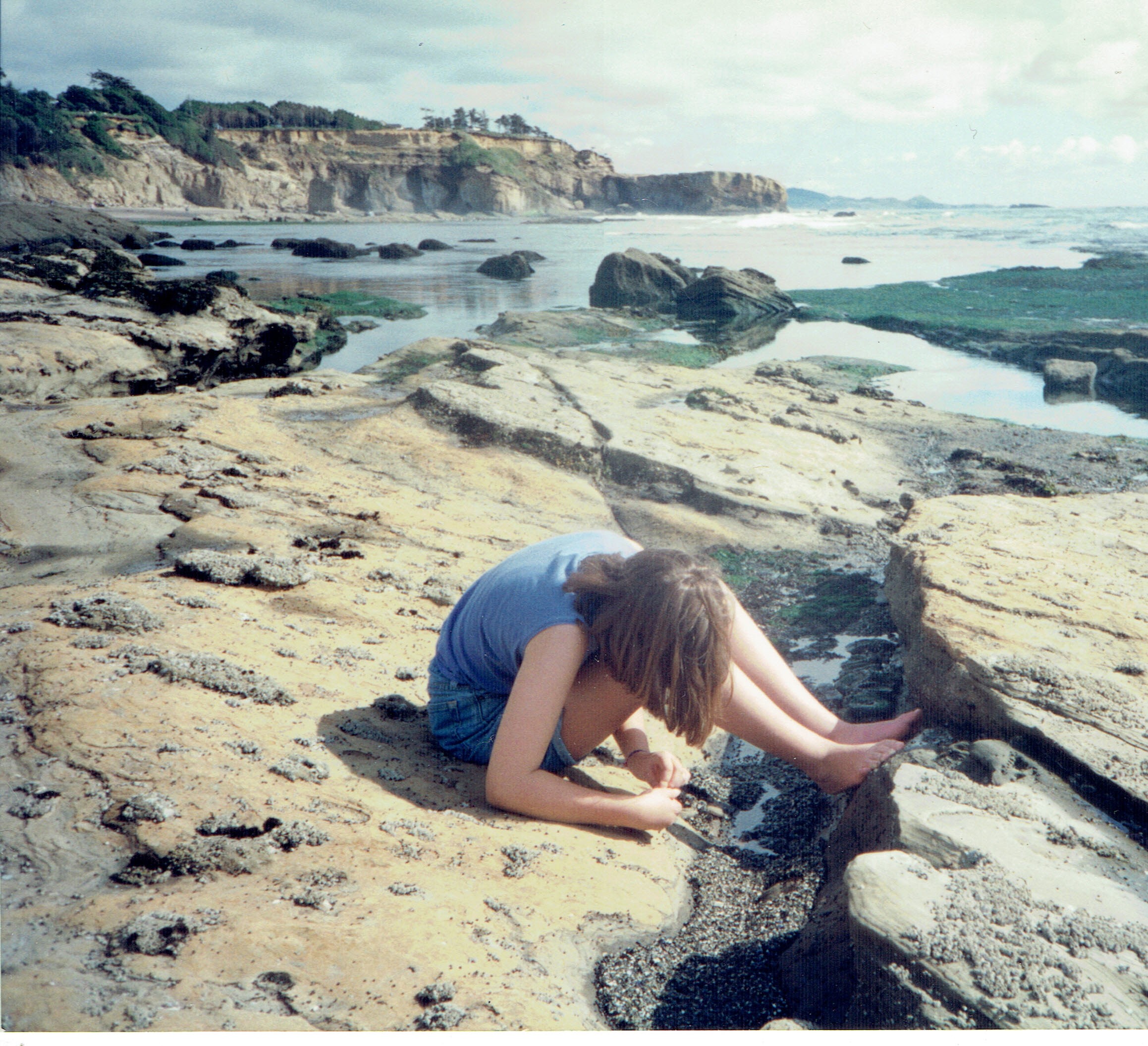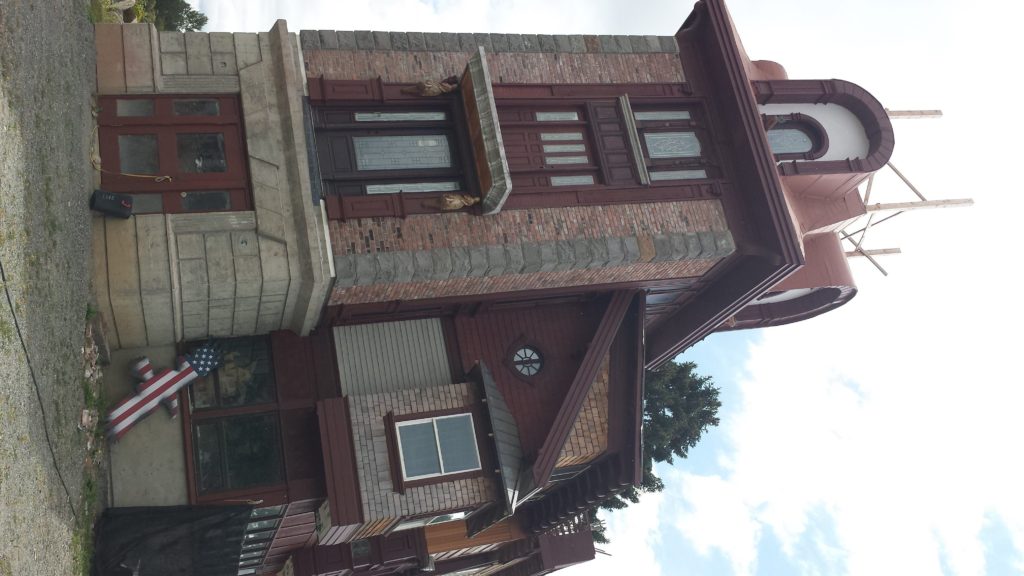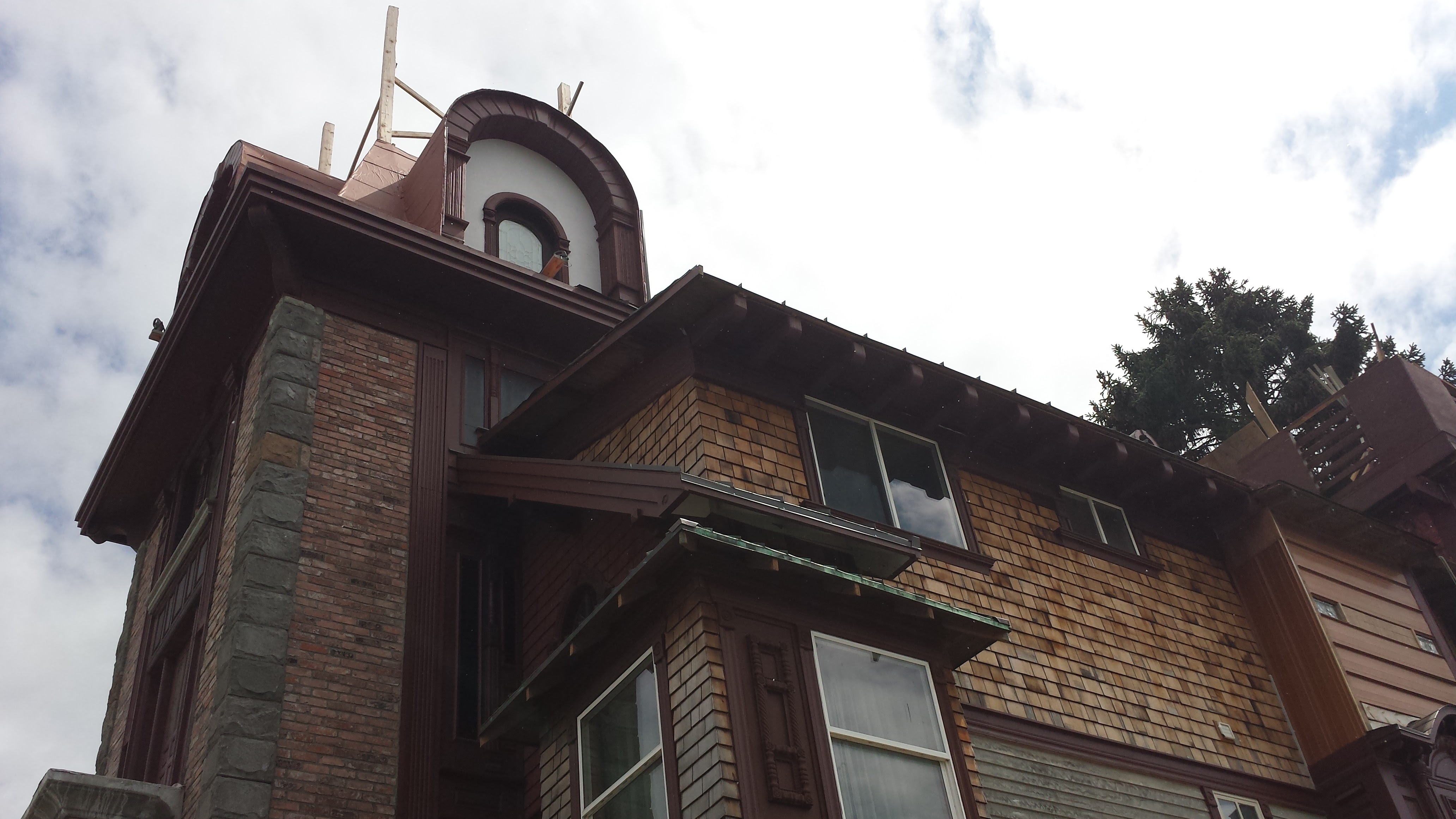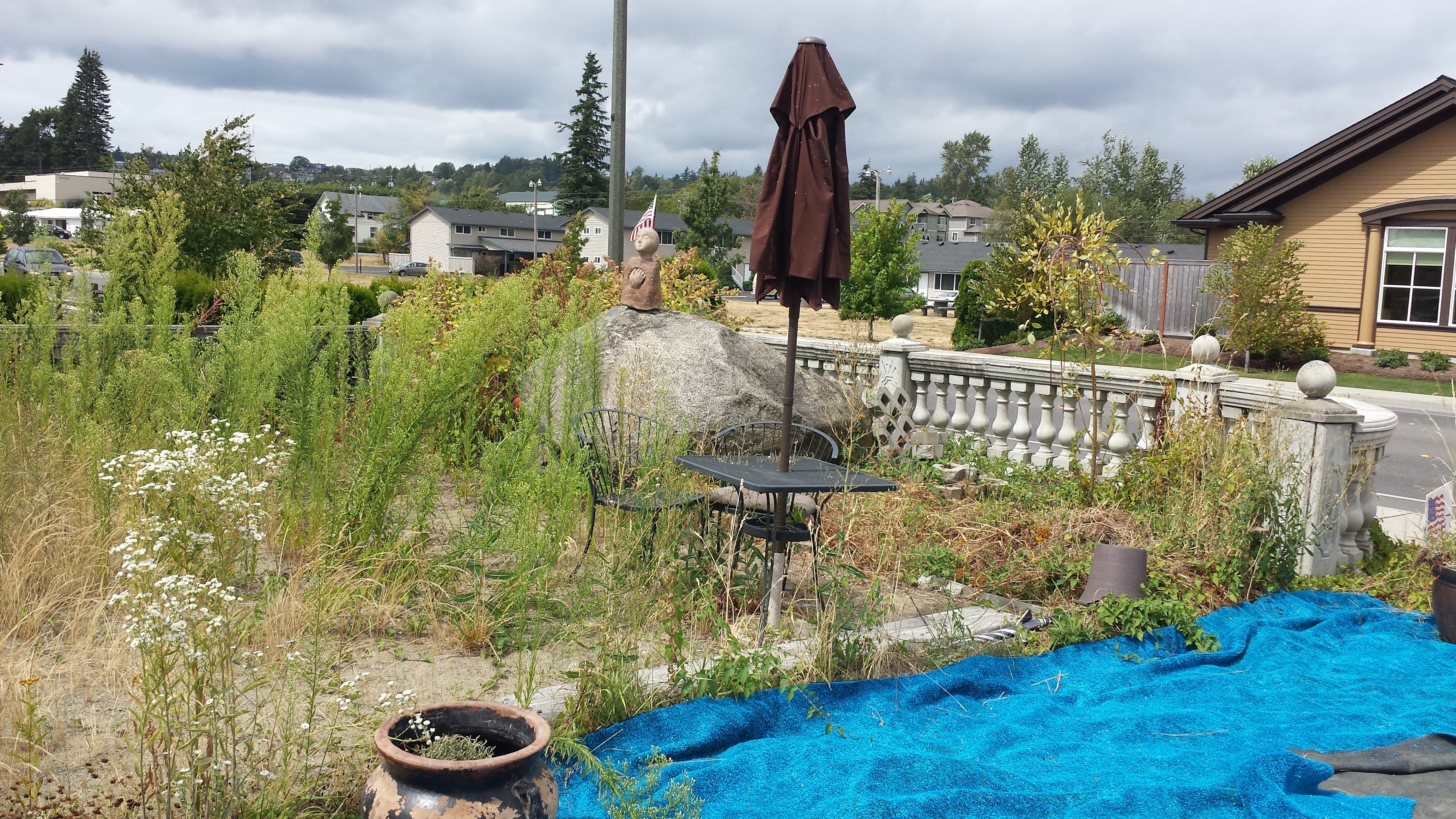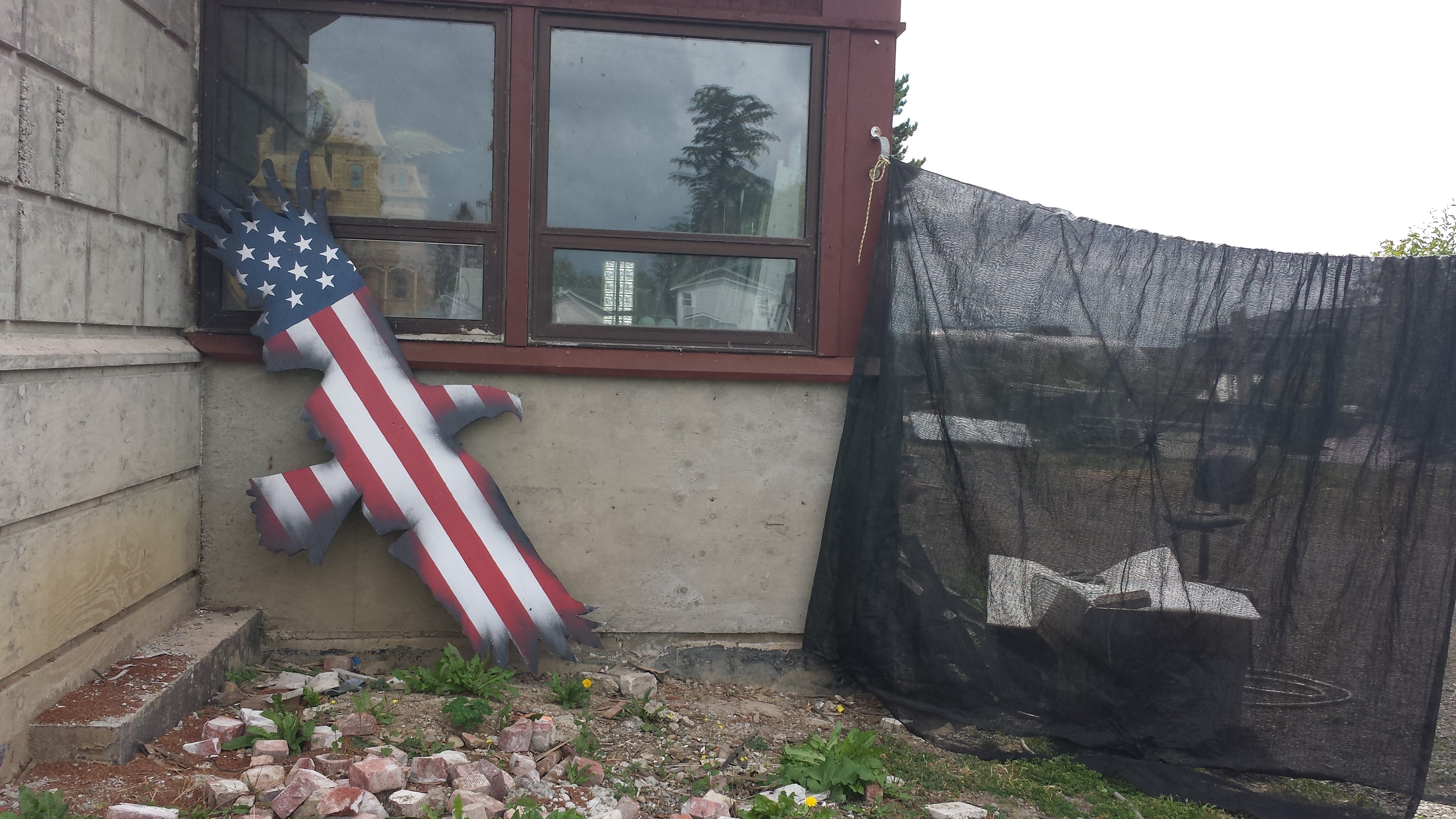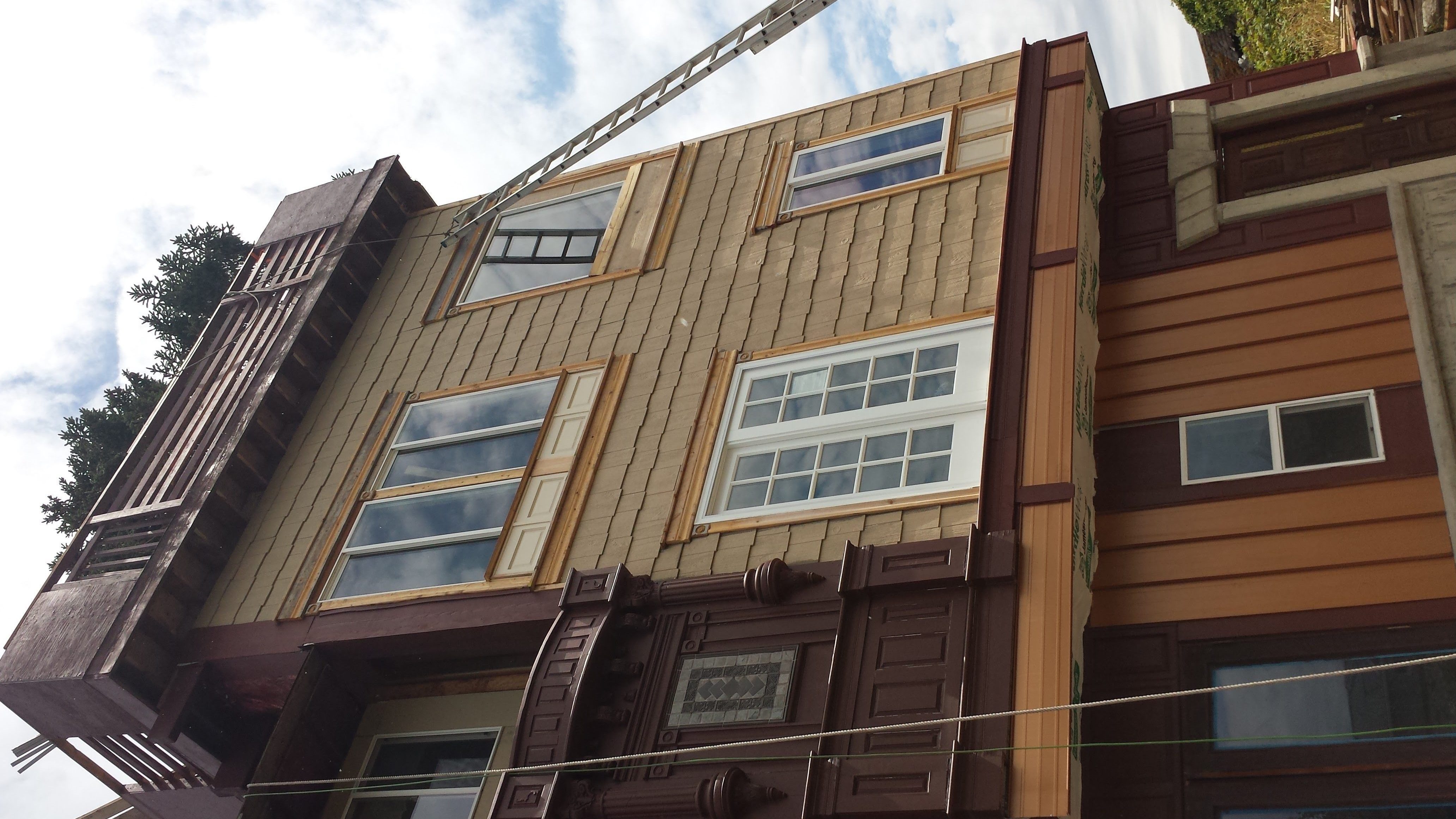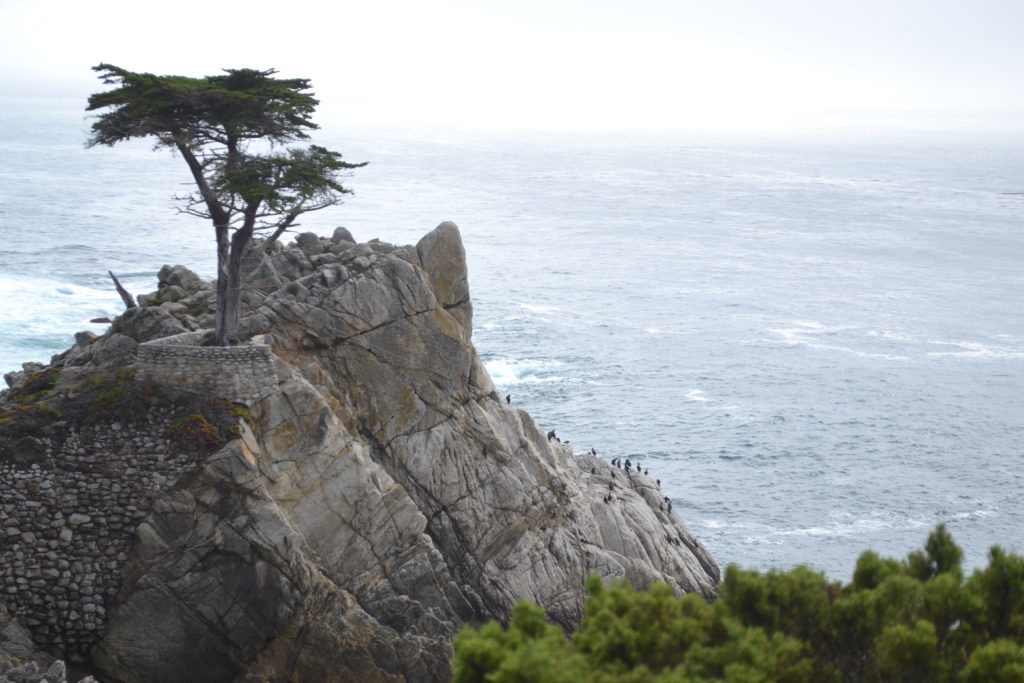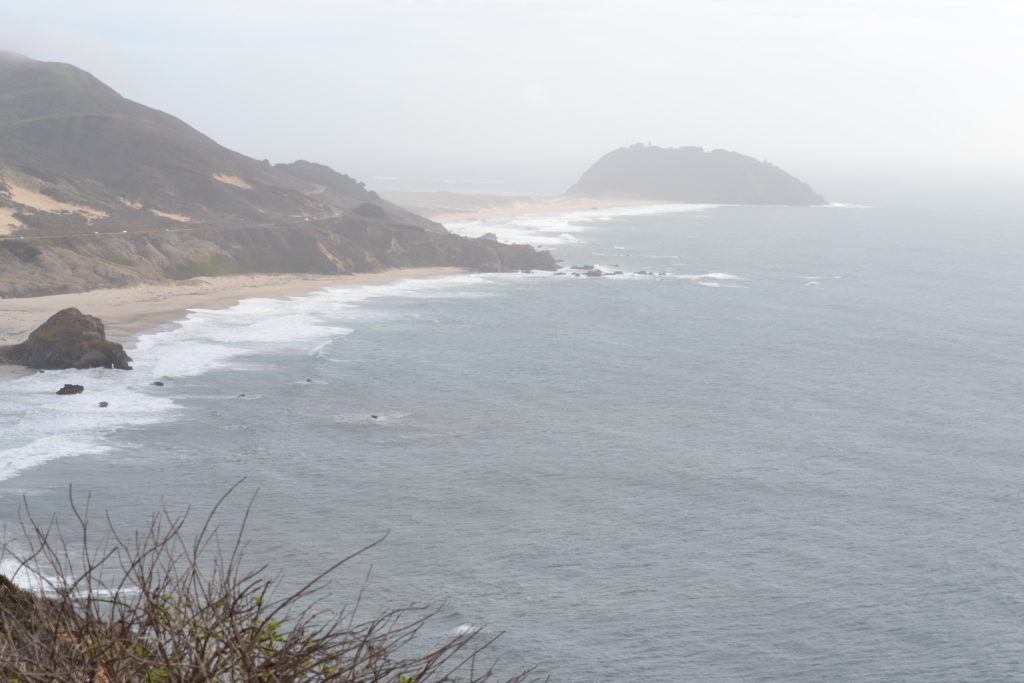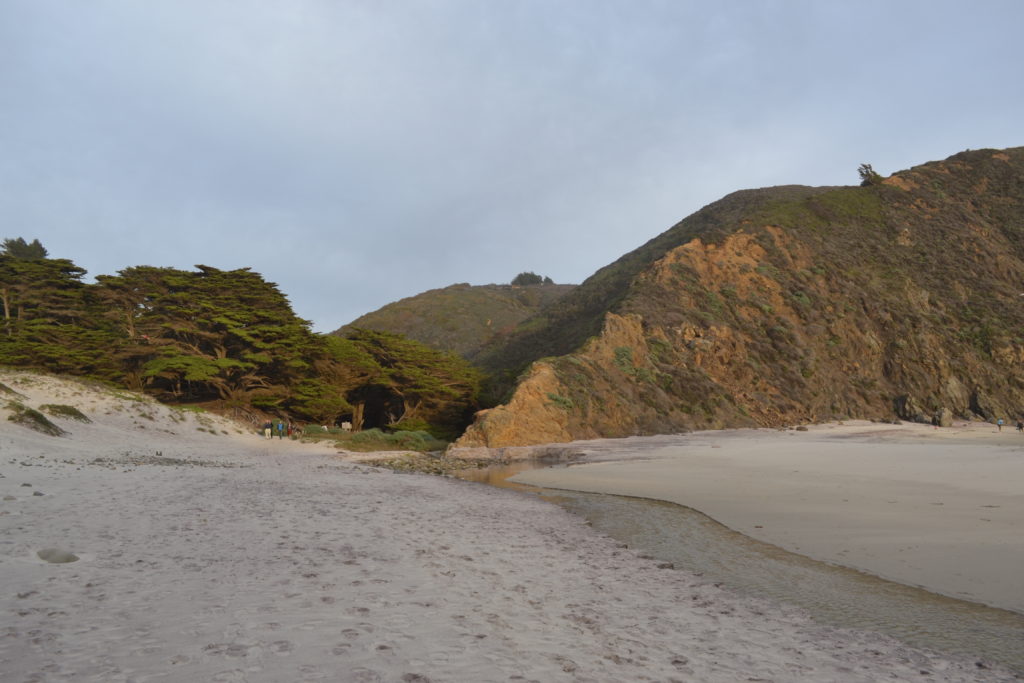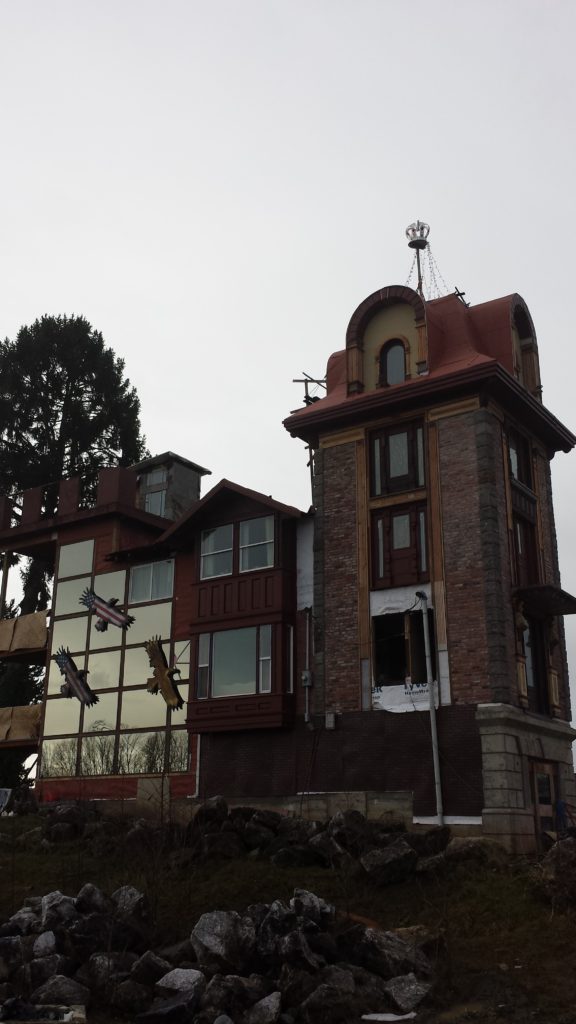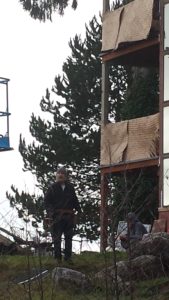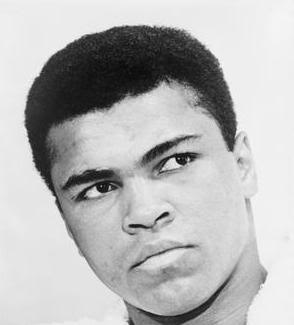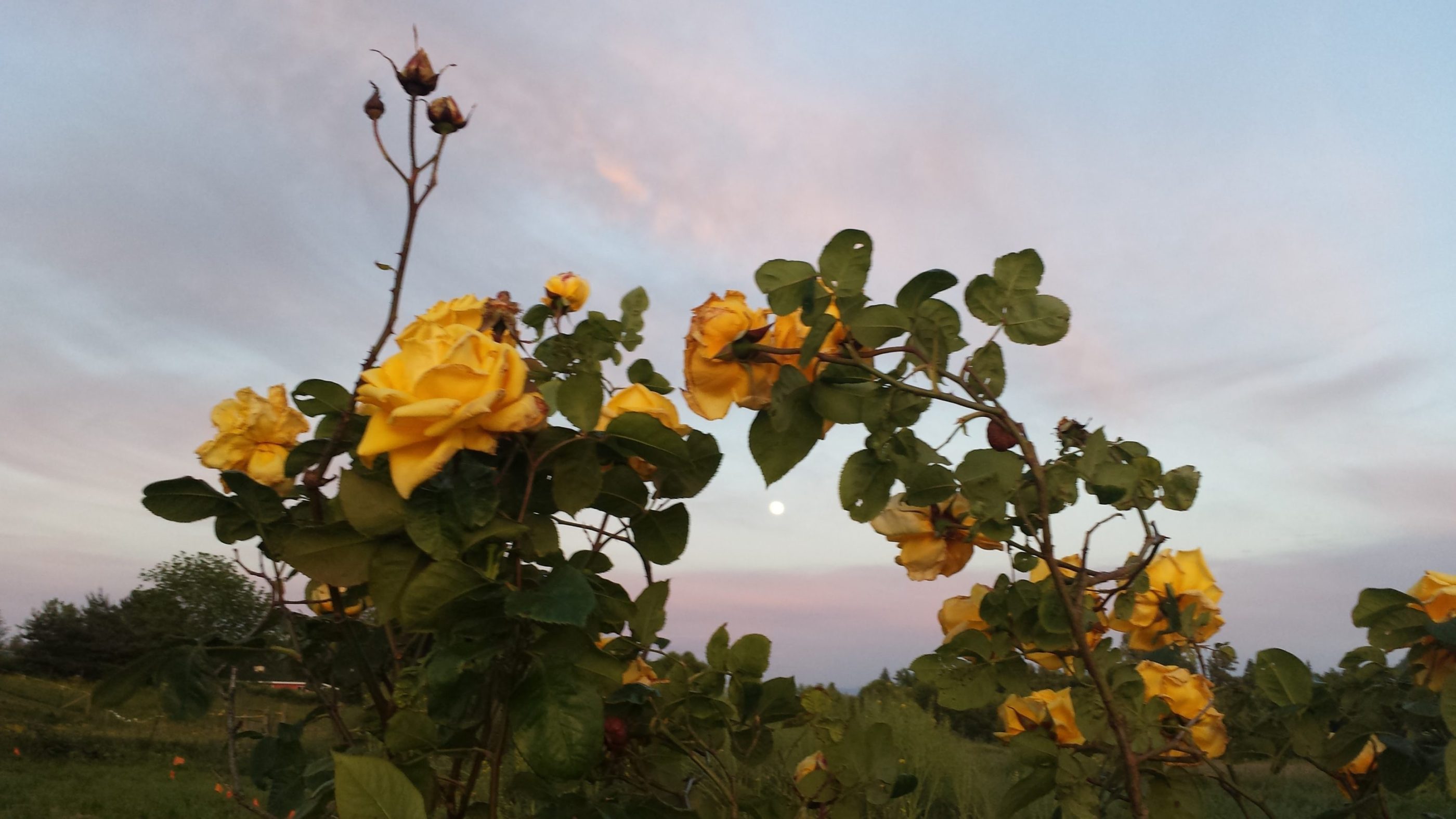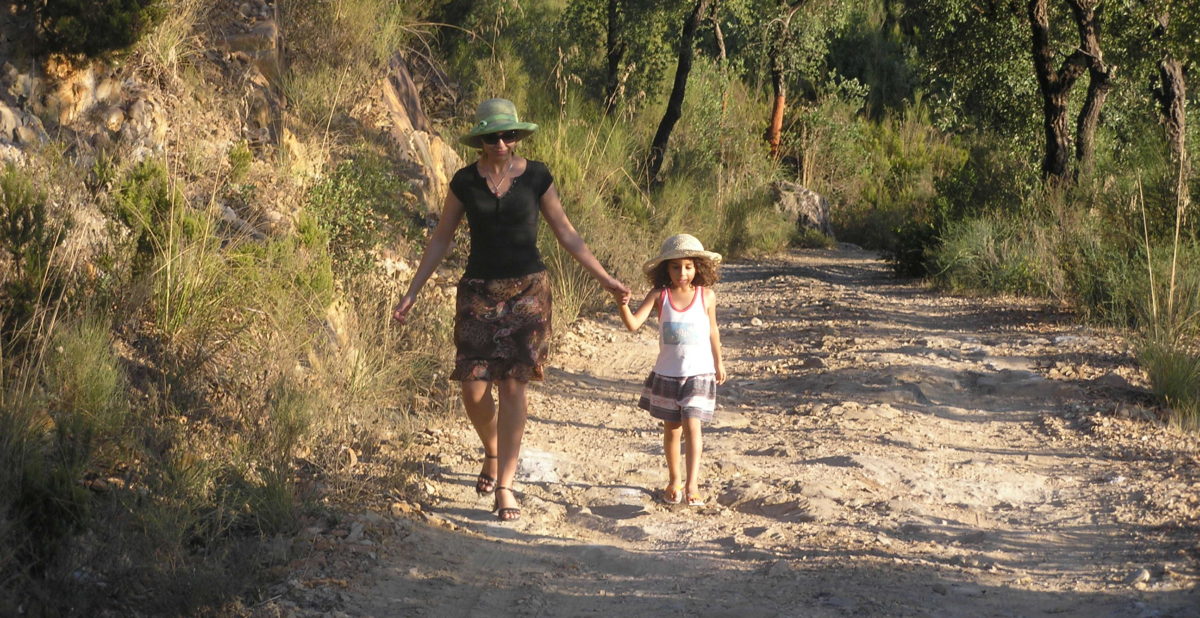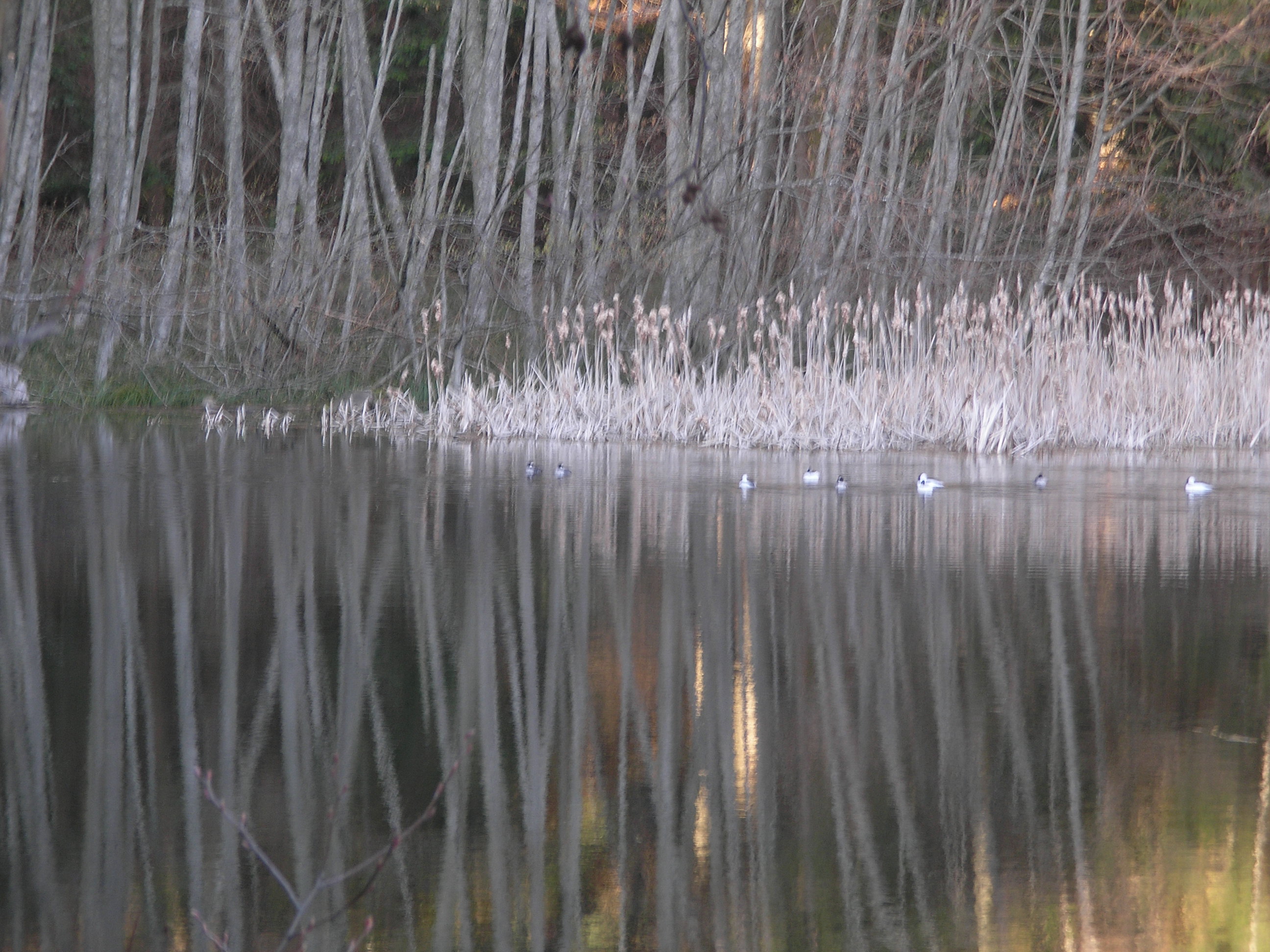There is a spacious sky always. It is vast and silent yet filled with the sounds of innumerable birds, clicking and humming insects, mummerings and songs. It is infinite and empty yet filled with the movement of countless particles of life. With our stories, we refer to it. We know it, yet never speak of it. We forget it easily and without care. It is often at the comings-in and the goings-out that we find ourselves living there, in that vastness, and are awed.
FIRST PAINTING
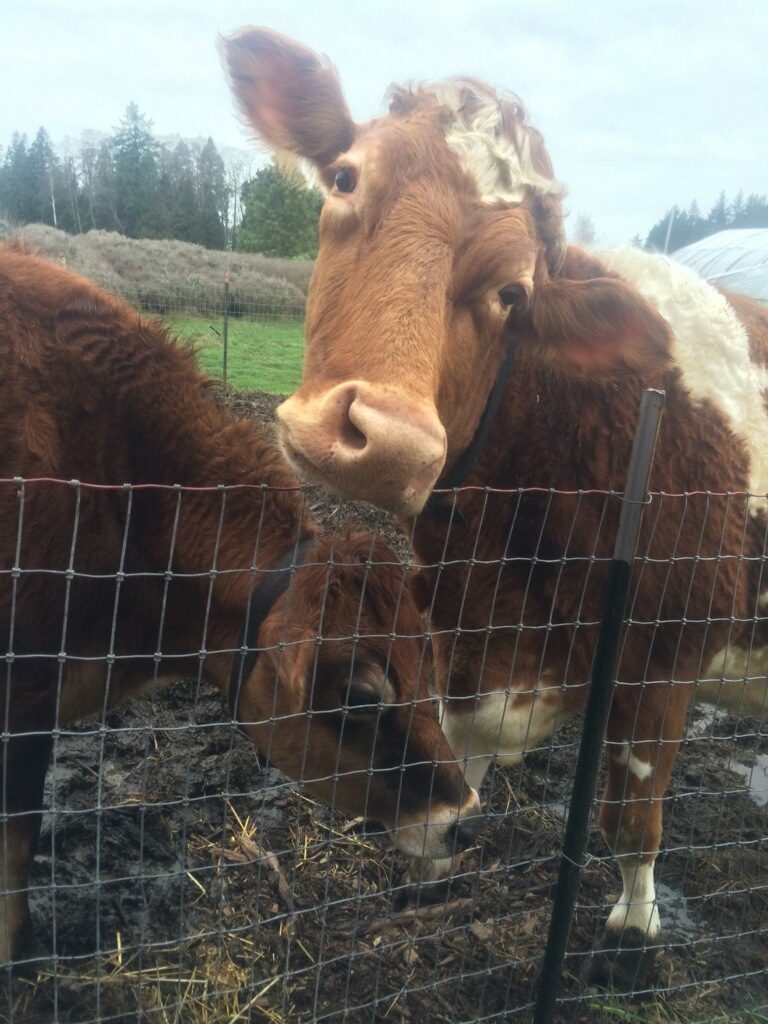
Our neighbor down the road brought rescue cows with her from the dairy farm in Massachusetts where she and her husband had worked. They had inspired the owner to allow a small rescue operation, calves with medical problems that would, on any other farm, have led directly to their slaughter. My friend learned to nurse cows through all kinds of ailments and spent such long hours with them her thoughts and emotions melded with theirs.
When her husband died suddenly a couple of years ago and she had survived the engulfing grief sufficiently to be able to sleep just enough, she put four of the rescue cows in a trailer and set out for Whatcom County, Washington, to live with her brother and sister-in-law, pulling the animals behind her in her big, old, brown Ford Excursion. A very quiet and solitary younger man who had worked with them diligently for years at the farm drove the rental truck, filled with hay.
They made a detour to pick up her son in California. When she arrived, the cows had not been out of the trailer for the twelve days of the trip. They stayed in the trailer for two more days while she and her son built the fences and modified the stall in the barn. When finally the cows were able to leave the trailer for the relative comfort of the pen and the barn, my friend told us how they had demonstrated their ecstasy, rubbing their cheeks against her side and mooing with sheer exuberance.
Driven by all their pent up energy and the excitement of a new space, they managed an escape from the barn that very next morning. The largest of them, a steer of some four years, galloped past my friend’s bedroom window where she slowly unpacking. Seeing him through the window, she dropped what she was doing, called for her sister-in-law and ran out the front door. By that time, he had run around the rows of lavender her brother and sister-in-law were farming and was headed back at a good clip down one of the aisles.
Fear in her bones that he would trample the precious lavender plants, she paused, trying to anticipate and guide his flight, but he turned and took off up another aisle before she could intercept him. On the far side of the lavender field he stopped, lowering his head to munch some clover.
“I sauntered up to him,” she told us, “walking a little in this direction, a little in that, looking at the lavender, lulling him into thinking he had all the time in the world.”
“When I finally got to him, we rubbed cheeks. I took hold of his halter and led him easily back to the barn.”
Her sister-in-law had already managed to lead the other cows back, she related, since they had docilely gone only a short way into the grass.
This steer who had gone on this nice run had been born with a hole in his heart. His name was Mason. My friend had nursed him intensively through for his first months, almost constantly at his side. He had survived. The vet had told her he couldn’t make it past six months, never having had the experience of someone saving such a cow from the butcher. He had reached his sixth year and a weight of fifteen hundred pounds.
“We had such a connection. I know it sounds silly, but I could read his thoughts from across the yard. We would look at each other for long moments and understand.”
My friend had come to dinner one night. As we ate and drank wine, she told us about his death the day before. For days, she had been working with the vet to figure out what was happening to Mason, who was in pain and unable to stand. The vet had no experience with cows surviving with a damaged heart since they are all slaughtered soon after a defect is discovered. No domestic steer live past the age of two when the maximum “return on the dollar” is reached.
They tried everything they could think of—both curative and palliative medications, deep beds of hay to cushion his pain. She sat with him throughout the last days and nights, his great head resting on the crook of her arm, eye to eye, nose to nose. They had looked deeply into each other’s eyes, she talking to him about what was happening, reassuring him she would do whatever he felt he needed. As he breathed out, she breathed his breath in. As he breathed in, she gently blew her breath in through his nostrils. He could no longer sustain his weakness and discomfort. They had decided together to put him down the next morning.
She had given him the shot herself and ushered him through the letting go of life, friend to friend. For her, she said, it had been a profound ending of so many things, a loss of so much that was so loved.
“He knew what was happening. We saw each other. We felt each other. I felt his letting go, his relaxing into what we had acknowledged.”
For many days after that night at dinner we didn’t see her, perhaps lost in the meanderings of emotion, until the other day she broke her head through the waters and pulled her big Ford up into our driveway once again.
SECOND PAINTING
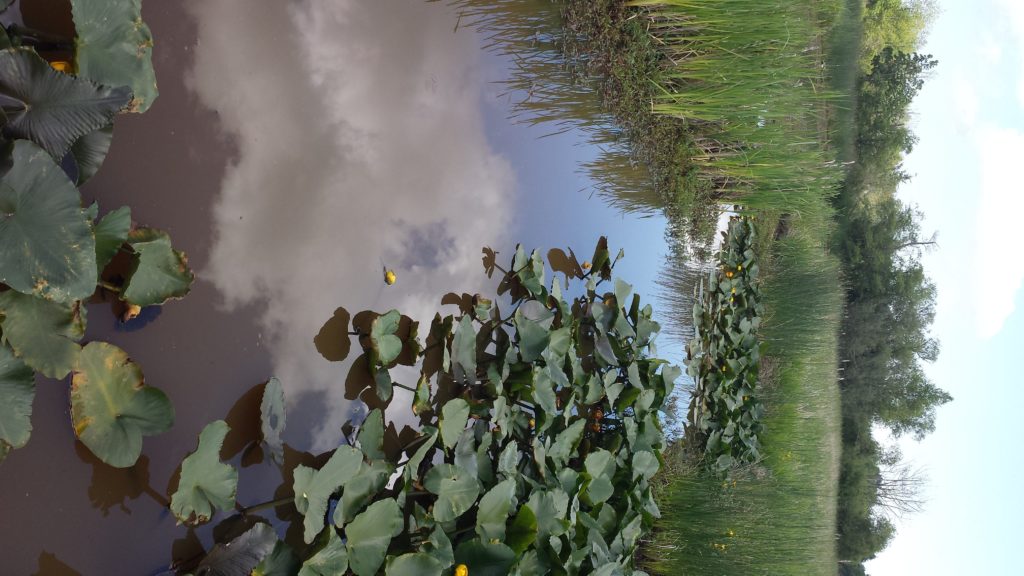
Several years ago now, they called me during a formal benefit dinner for the social service agency where I was a supervisor. My mother, they said, had just had another in a series of heart attacks which, at ninety-six, were usually barely noticed, multitudes of tiny capillaries having formed around her heart to share the load. This one, however, seemed to have been the final blow.
She was clearly leaving. The hospice worker, they said, was there, making her comfortable with morphine. Lyle, the companion I had hired to take her on outings, happened to have been there visiting another woman, and had gone immediately to be with my mother. When my mother had moved from the east coast to be in an assisted living near me, she had been lonely during the days I couldn’t visit. I had tried to get her to hire someone to take her out but she was adamant she could find a friend herself.
One day, the director had called me in a panic to say they couldn’t find my mother. I was on my way over when they called again to say they had found her a few blocks away down the busy road. She hadn’t wanted to come back with them, saying she was just taking a walk to Times Square. They were ridiculous to think such a familiar trip was dangerous.
So I’d tricked her. I told her Lyle was a retired woman I’d met. She was bored, I told her, and looking for company, for a new friend. After just a couple of lunches with her, she was totally captivated by this woman who was lively, excited about life and let her teach her French.
Despite the deception and the money I paid her, a genuine friendship had grown. This was a caregiver who cared from the heart. I had watched her cradle my mother tenderly in her arms when she had become inexplicably sad. She’d hugged her and consoled her one day when a caregiver had accidentally died her hair a neon purple-red. She’d taken her for a visit up the road to Mt. Baker and turned back when my mother was overcome with panic at the site of the mountain looming larger and larger around them. She’d danced with my mother in the spring tulip fields. She’d learned to speak whole sentences in French. When I walked into the room, she was there with my mother, stroking her thin hair, helping to pull on her nightgown and talking quietly in her ear.
As I’d gotten into my car at the hotel, I called my daughter in Seattle to tell her it was time. As I’d clicked off my cell, I thought how like a birth this seemed—calling someone to say the labor had truly started. There on my mother’s bed, with her head cradled softly on Lyle’s shoulder like a child, we talked, all three. I was still in the long black dress and scarf from my fancy dinner and my mother said, as she often did when I first walked into her room,
“You’re so beautiful!” exaggerating, as if discovering something for the first time.
We kissed each other’s cheeks, lingering a bit more than usual. As Lyle was helping her settle back on her pillow, I said,
“You look so nice and comfortable.”
“Yes”, she said “Delicious,” with a little sigh.
“How was your day?” I asked.
She paused to think for a moment. I thought she had drifted away. Then she said, with certainty,
“It was good. I accomplished.”
Savoring it, she repeated, “I accomplished,” and smiled to herself as she let Lyle settle her back on her pillow and her eyes, with heavy lids, closed.
I called my husband to tell him the state of things. He had chosen, long before, to stay at home at this moment and allow us our intimacy. My daughter called to say that her husband, someone my mother could somehow remember when she forgot everyone else, would drive her. Since my mother was sleeping deeply, I thought it was a moment to prepare the celebration we could share with her as drifted.
Across the street, I bought a bottle of Harvey’s Bristol Cream–my practically-tee-totaling mother’s only indulgence–some French cheese and some bread. I walked back with it and set out the sherry glasses she’d preserved from her wedding seventy years before on the round glass and metal coffee table she’d bought in the ‘60s as a sign of her avant-guard tastes. I pulled over the box of photos I’d salvaged from the mice two years ago at her home three thousand miles away and began the wait for both my daughter’s arrival and my mother’s exit.
While she slept, snoring lightly, I began sifting through the scores of black and white photos I’d left for her as a project she never remembered she had. Memories of emotions, both painful and warm, ran through the thread of these moments in time. We had fought so hard for so many years. I had felt so much exasperation, desperation to be away from her, even years after I’d gone to college. Then the last years of warmth and intimacy, she fighting to maintain every shred of autonomy possible.
Even though Harvey’s is much too syrupy for my taste, I poured myself a sherry glass full and sipped it, beginning to feel the reliable warmth spreading through my veins. I settled back on the sofa, feeling the fatigue in my chest, and closed my eyes. There, in the resulting dark space was the image I’d just seen in the photo I still held in my hand, too tired to put it away–my mother with thick, long dark hair pulled back with pins, a thin, lithe attractive young woman with lively, challenging eyes, her knees bent, a tennis racket balanced in her hands as if to receive a back hand shot from my young, handsome father on the other side of the net. I watched this for a while in my mind’s eye, noticing the drape of the tennis skirt and the tenseness of the muscles of her arms and shoulders.
I must have dozed for a while and was awakened by the hospice nurse opening the door quietly to check in. She nodded hello, saw my mother was resting peacefully, lifted my mother’s arm to take her pulse, turned toward me and whispered,
“She’s doing well.”
I nodded.
“If she wakes up and seems uncomfortable, give me a call. I’m sleeping here in an empty bed tonight.”
So like a midwife, I thought.
I pulled over a chair next to the bed to sit beside my mother’s head. The skin of her face was like translucent rice paper, splayed with darker patches. I noticed how it stretched gently over her convex cheeks and folded over in soft waves down her neck. Through the opening of her nightgown, I studied the bony ridge of her shoulder-blade and the beginning of the familiar valley that was her mastectomy scar. I had seen it first in the weeks after her return from the hospital when she, who was always up and busy from early morning, lay in her bed, day after day, recovering. I remembered the empty feeling in my gut when, at ten, I first saw the angry red and purple jagged lines around the indentation in her chest.
As I sat, looking, my mind a bit blank with fatigue, a fast series of deathbed scenes from old movies and TV shows flipped by behind my eyes. I smiled to myself. The triteness of such moments. The reality of this. The stale-ish smell of her skin, the present quiet of her soft breathing, the sense of calm, sitting there together. I went back to the sofa and pulled out the album I’d started.
“Look, Mom.” I said.
“Who was this person standing next to you and Uncle Abe? Looks like you were at Cape Cod. I think it’s the light that makes me think that, and the pine tree in back of you.”
“And this one. Your friends around the swimming pool, and me, fifteen, sitting there on the white chair, playing the guitar. I must have been playing that folk song I’d just learned. You look happy and I look like I’m trying to be Joni Mitchell.”
I picked up one after another, talking about each one with her from across the room. I knew she was listening from some remote, amicable distance, just as she’d done when we sat together at the kitchen table, so many mornings, with the light coming through windows, sometimes cool, sometimes warm, above the worn café curtains, she half-listening, always following other thoughts of school, of worries.
Sometime during the flow of this conversation, my daughter was suddenly at the door with her husband behind her. As I got up and we came together and hugged, my daughter, so young, her skin cold and fresh, taking off her coat, kissed her grandmother–who continued her sleep–very softly on the cheek.
I invited her husband to stay, but he declined, saying he’d go back to the city and work in the morning. He found the hospice nurse who was still up and brought a cot into the room for me. We made up the sofa for my daughter and the cot for me and we settled in, drinking a bit of sherry, eating bread and cheese and talking about times with my mother, both of us aware she might be listening, pitching our memories and the tenor of our voices to include her, talking about the difficult and the joyous—so she would know we encompassed it all. The moon was full and bright outside the window.
We lay back and continued to talk intermittently, like a sleep-over party where one friend had slept early, all the while listening to my mother’s breathing. We fell into light sleep. Each time the breath paused, suspended, I came awake, aware my daughter was also suddenly alert. We’d wait together for the next breath and then drift back.
We had both fallen into a deeper sleep, when, opening my eyes a bit, I noticed the moon was gone and there was the beginning grey light of dawn. Quickly, I woke myself fully, realizing my mother had taken a breath just as my consciousness had begun to open. I waited for the next, holding my own breath, suddenly aware my daughter was doing the same. It didn’t come.
“I think she’s gone.” I heard myself say, immediately feeling the choking of unexpected tears in my throat.
“Yes”, my daughter said, “Yes. I think so!”
We both jumped up, pushing off blankets and pillows. There I was, the mother myself, crying and saying “Mom! Mom!” putting my head on her chest, hugging her, my daughter behind me, hugging me and touching my mother’s hand. I, the adult who had remained calm in front of this daughter for all the years of divorce, kept the most intense for the darkness and my friends. Coming from the calm of the night, such a wave of intense emotion had not been imaginable, yet here it was, like the scenes from the movies, the best and the worst.
We stood back in awe of the force of what had just happened, looking at her face and then her body, covered in a sheet and a light blanket.
“Look!” I said, inhaling sharply with the choking of tears in my throat.
“Look how there was something there one minute, fire, warmth, thoughts, and, as soon as the breath left, it was gone. Right away. Like a switch turning off. Boom. Gone. Just something left that looks like a pile of clothes and paper.”
The breath itself had done its time moving through her body. This breath had not gone. I, for instance, had caught it in that moment of balance in waking, in the pause waiting for the in-breath. My daughter had caught it in her moment of attention. All those who had passed through her life, talking, looking, breathing, had breathed it and were passing it constantly, back and forth, in and out.
We leaned over her, embracing that empty form and each other. As the first intensity of emotion began to die down like a wave receding from the shore, the last thing I’d heard her say, so mundanely, came back to me.
“I accomplished. I accomplished”,
She had not been reviewing just her day, as she had every day, but her life. And it was good. She had recognized in that wide-open moment, that the thing most important to her life had occurred. She had accomplished things. Important things. She had taught well. She had raised a child. She had fought political fights. She had helped friends. She had accomplished. And she was done.
I remembered how, a few months before, as we sat together in a doctor’s office after a heart attack, she looking vulnerable in her medical gown, I asked her if she were afraid to die. She’d said, after a short pause in which she seemed to savor the answer,
“No. Not really.”
I asked her how she would like her death to be. She’d replied,
“I’d like to just disappear one day, drift away like a cloud. One minute I’d be there and the next, people would say, ‘Where’s Pearl? I thought she was just here.’ “
“I don’t want anyone to be sad. I don’t want anyone to cry. They’d just notice, ‘I guess she’s gone’, they’ll say.’”
After a while, we smoothed her blankets and stroked her cold head. I went to tell the nurses she had died. The motions of practical life began again. Breakfast was being served. The sun was high in the sky. My husband and my daughter’s husband were on their way over to help. The coroner would come. We would figure out the arrangements for her body and her cremation. We would spend the next two days moving her furniture, talking to the funeral home. It was all about movement. Life. Breath.
THIRD PAINTING
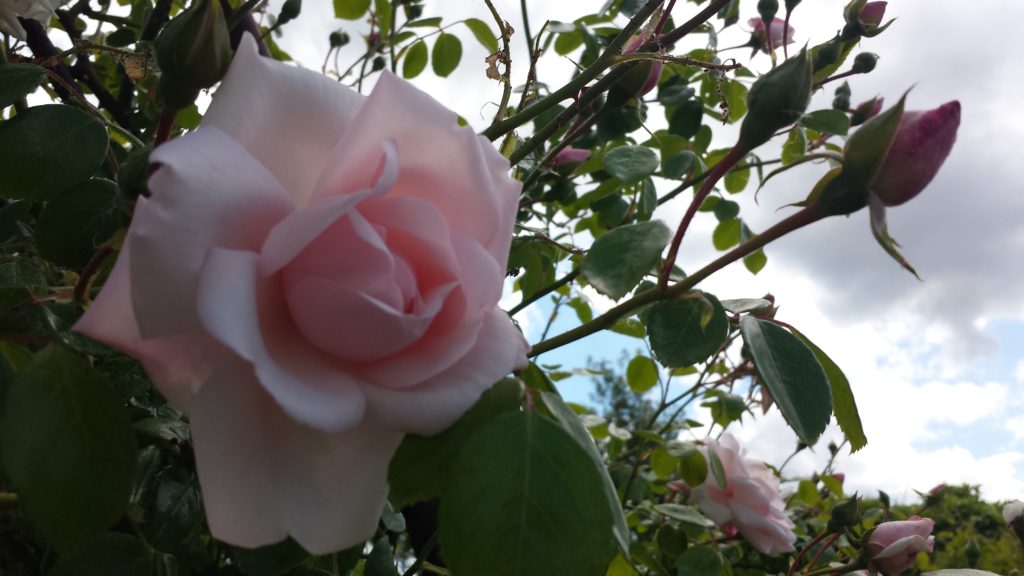
And then there is the moment of the first breath. The ushering in.
Nearly three years ago, my granddaughter came in to life one early morning. Each birth is a birth, a commonplace occurrence. It seems somehow trite, tinged with narcissism to tell it, what young women do together when they are in the throes of young motherhood, excited they have participated in something so complex, so fraught with dangers and seeming miracles. Yet each birth stops time in its tracks and opens into the depths of experience so little traveled. It is a story that reaches down into the well of the real things we have told each other for thousands of years.
My daughter called that Saturday when things were beginning to settle at the end of the day. She sounded a bit tired. She told me her waters had broken and the contractions had started at least a bit. The midwife had told her to come in to the birthing center. It was procedure.
It was late in the day. I’d been waiting for this moment for many days. Even so, it was somehow unexpected. As I hung up, I thought of how many births happen late at night or early in the morning. Get there soon, I thought.
It came back to me as I dressed–the trip to the first birth I’d witnessed so many years ago as a woman of twenty-two. How time seemed to stop as I drove to my friend’s house after getting the call labor had started in earnest. There was a sensation a hole had opened in the fabric of time. Lights had turned green for me as I drove, focused.
I threw some things into a bag, said good-bye to my husband, got in the car and set out to Seattle, thinking as I drove of things to talk about with my son-in-law to keep him at ease. His culture had not prepared him to be at his wife’s side during labor and birth, but after long and quiet self-examination, he had determined he would do whatever he could to care for his wife and be present for the birth of his daughter. I could be there to distract him with conversation and hopefully some laughter and wisdom.
When I arrived at the birthing center in Seattle, I parked and made my way through the wandering halls, finally finding the group of birthing rooms arranged around a circular nursing center. It was already late at night. The midwives directed me to the room lined with windows where my daughter was resting on a birthing bed, smiling, dressed in a bright flowered yellow and rose loose Khabyle house dress. She had spent months with her husband’s family on the north coast of Algeria, at the foot of the Atlas Mountains and the shore of the Mediterranean, working on a visa for him. She had worn this dress at home with her many sisters-in-law and had kept the custom when she’d returned.
In a few minutes, a woman dressed in a blue hospital gown with a gauze mask walked into the room. I recognized her as a close friend of my daughter’s. I’d met her once or twice and knew her as a young woman who exuded competence and calm, a woman with a steady, gentle gaze. She had attended a Master’s program with my daughter and was, in addition, a nurse. She had volunteered, without hesitation, to be a doula at my daughter’s birthing. My daughter had been overwhelmed by this offer, knowing how skilled she was and particularly how well she was able to draw the truth from the arcane language spoken in the medical world surrounding a birth. An interpreter and mediator as well as a firm support.
She had arrived, she said, shortly after my daughter, coming from the end of a double shift at the hospital where she worked. Matter-of-factly, she told me that the morning before she’d started that double shift she’d been at her son’s soccer game and screamed her head off. When she’d gotten my daughter’s call she realized she had a scratchiness in the back of her throat whose cause could be one thing or another.
“I can’t be sure, so I put on a mask. I really, really didn’t want to let her and the baby down. I wanted so much to be here. It’s a small thing.”
She wore the stuffy mask for the next thirty hours.
We chatted together a bit, the four of us, in the quiet space before a contraction. There was joking and laughter, my son-in-law lightening the mood. He’s good at that. A mid-wife wandered in, introduced herself to the two of us who had just arrived and checked on my daughter’s progress.
So began a long night, followed by a long, long day that stretched into a second night. What I was to remember afterwards was the sense of women together, totally focused on the energy of moving life from inside a woman’s body to the outside, a sense of knowing each other and the needs of the moment without question, of observing the reality of each of those moments and digesting its emotion, its signals, its demands as if we were all breathing one breath, riding together the waves of an ocean, ignoring fatigue. And the warm companionship and deep, quiet emotion of my son-in-law, working within the flow of all this.
Since she had begun the long day just ending without having slept the night before, we tried to let my daughter rest as much as she could. Between the times she had to be awake to meet the rising pain in her abdomen and back, we reminded her to close her eyes, but she never was able to sink into real sleep.
As they do, the pains became more and more intense with passing time. We took turns kneading and pushing our fists into her lower back to help her bear it. She stood now with her forearms bracing her on the bed. Her husband, being the strongest, took many turns. The doula, being the most skilled, took even more. The midwives wandered in and out, seeming unconcerned.
As the hours dragged on, she became more and more tired. She took long turns in the warm whirlpool water, relaxing as much as she could while we massaged her through contractions, sometimes alone with her husband, forming a space where her anxieties could be heard. As she began to look more and more like a limp, wet rag doll, he visibly fought harder and harder to bear his own anxiety. He left the room from time to time. I could see him through the windows, walking in the street below, smoking.
The midwives, now different women after the change in shift, clearly were beginning to be concerned as they talked together quietly. The doula had been trying to coach my daughter as much as she could, not wanting to usurp the midwives’ authority. She tried to help her visualize how to use her muscles to push with the natural force of her uterus’s contracting muscles.
But as she became more exhausted, it was increasingly clear she had not found a way to work effectively. She was confounded and confused. We asked the new midwives to help her figure out how to push with more efficiency. They tried at last, but with each push there was still little movement of the baby down the birth canal.
As if seeping into the air itself, a draft of fear was creeping into the room. It had an ancient smell. Somehow, as the puffs of emotion went through me, they suddenly uncorked a memory of giving birth to my daughter, this same daughter who was suffering now, beginning to struggle with her fear. My body, without urging, remembered a distinct sensation, the sensation of my midwife’s two fingers, pressing painfully hard down on the floor of my vagina while she said,
“Push right here! Push where you feel that pain! Focus it right here.”
This was the moment when, bordering on the same rush of fear my daughter must now feel, fear that something might go seriously wrong, that somehow no baby would be born, my mind and my body had organized themselves as one. Now, there in the room with my daughter, a grown woman, I took the midwife to the side and explained what might work. She looked at me skeptically. I quietly insisted. “Try it. Now.” Recognizing there was no alternative but to listen, she went to my daughter and told her what she was going to do. She helped her climb back up on the birthing bed.
Standing at my daughter’s head, I whispered in her ear, feeling the reverberations of voices of women’s voices through the millennia, “This is what helped me when you were being born. It works.” The midwife pressed with her fingers and my daughter cried out with the pain and pushed. The baby’s head moved!
By this time her energy was at such a low ebb she was too weak, even with this new help, to push hard enough with each contraction. A few hours earlier, the midwives had put a monitor on my daughter’s abdomen to monitor the baby’s heart rate. When there was less anxiety in the atmosphere, my son-in-law and I had rested on the window seats talking a bit together and listening. As my daughter rested between contractions, the beeps of the monitor sounded like a little horse trotting down the road. As the contraction started, the horse would speed to a near gallop. We would say,
“There she goes! Running, running! Go horse! Go!”
As the contraction progressed, it would slow to a languid walk, like a heavy plow horse. As it slowed, our pulses clearly quickened, our attention focused acutely on helping the horse make it down the lane. We commented to each other about the little horse, imagining its color and the look of its head. Now, the whole room was focused on the pace of that horse. It was clear its plodding, tired pace was leading it down the road toward darkness, just as its spirited gallop was clearly filled with the exuberance of life.
Soon, another woman walking tall and confidently was ushered into the room. The midwives introduced her to us as the obstetrician on call. They explained they had called her in to help them assess the progress and look at options. Her eyes in a slim, olive-skinned face were clear and her glance direct and penetrating. She looked into my daughter’s eyes.
“I’m going to examine you and see and see how far that baby’s progressed. We may need to help you out some more.”
As she said this, another contraction gripped hold. The doctor reached in, skillfully easing the opening, helping the head to move further forward.
She said, “That was good. There was more progress. But I’m concerned, I have to say. You’re so tired and have clearly worked so hard and there’s still a significant way to go. It could happen, but you might well not have enough left in you to push as hard as it takes.”
“Here’s what I’ll do. I’ll go prepare for a C-Section. It will take a little while. Meanwhile, if you end up pushing that baby out while I’m gone, I wouldn’t mind a bit.”
They agreed together to do whatever was necessary, two women deciding calmly in the midst of it all.
She and my daughter exchanged a slight smile as she walked away.
As the door closed behind her, my daughter came to life as a contraction hit.
“Ahhh!” we heard.
“Okay. Let’s do this!”
Her friend and I went back to our respective places at her left and right sides, bracing her with our shoulders under her armpits as she rose to a sitting position and bore down with real strength. We found we were all screaming together, “Ahhhhh!!!!”
It was as if she had somehow tapped into the strength and freshness of a full night’s sleep, pulling strength from deep within her spine. The horse’s footfalls slowed to a lazy, slow, slow walk as if it were impressed by the force of the waves it felt as they washed through, over and over.
“She moved! She moved!” my daughter yelled.
As the midwife at the end of the bed checked, she said,
“Yes! Definitely a good one! Keep doing that. Whatever you were doing, keep doing that!”
For the next twenty minutes or so, an eternity expired. Each time she pushed, we were all stupefied by the energy she pulled from somewhere well beyond the capacity of her physical body. In all this, we noted in the peripheries of consciousness that the father was no longer in the room. I thought briefly “He’s terrified of losing her. The intensity. The screams, The blood.”
As the three of us working together, somehow persevering through each wave, saw the baby fully crowned in the mirror the midwife held, the doula went quietly out of the room, bringing him back saying,
“Come. You can be here to see your daughter born.”
He came quickly with her, and though he could not watch, he stood by his wife, touching her, reassuring her as she pushed until the midwife said,
“You can come and help catch her. Come now!”
He stepped around as his wife began another push and the head slipped out and back. With the next and final push, the baby slid out with a gush of fluid into the two sets of waiting hands. As excited tears welled in his eyes, they were reflected around the circle of women. The mother, oblivious to everything now except the baby and her husband who held her, called to him across the bridge of their intimacy to bring her. The midwife gently took the baby from him and they walked her up together to the mother’s waiting arms. Two sets of hands, masculine and feminine, lay her with ineffable gentleness on her mother’s chest, where she met her mother’s hands for the first time.
If you have ever been in the presence of a birth, you know what expansive joy and nearly explosive relief were present in the next moments as the women and the father worked together to position the baby, greet her, birth the placenta and cut the cord and, as the agony of the afterbirth was passed, how calm began to descend. As the midwives wiped and weighed the baby, I heard one say quietly to the other,
“I wish all the dads were as wise as this one. I wish they knew how to respect their own limits like he did. I was truly impressed.”
Culture meets culture.
Much later in that first day of her life, as we had all slept a bit, the parents alone with this new life, I held my granddaughter against my shoulder, wrapped tightly in her swaddling blankets, feeling the heaviness of her sleep and the fragrance of her.
“When I saw her there on your chest, her eyes looking out,” I said to my daughter who was resting on the birthing bed,
“I thought, ‘My God! Look at that. Not only is she alive and breathing and moving, she’s beautiful!’ and I realized all along I’d been rehearsing the possibility she was likely as not to be as ugly as a plug–or deformed. But I knew I would still love her enormously. After all, my great aunt Bella was an ugly son-of-a-gun and was an amazing woman with huge intelligence. But, ‘Miracle of miracles,’ I thought as I had looked at into her eyes for the first time, ‘She’s actually beautiful!,‘ “
“Not that it matters!” I added, smiling.
“Oh no!” my daughter laughed. “You did?”
“Me too! I thought that same thought as I looked at her face as I held her. I thought ‘How could it be?’ But I knew I must be the only one thinking that–a mother’s fears!”
As tears squeezed out of our eyes, we laughed as if we might not stop. I thought of my own mother, the one who had adopted me after years of trying and never had the same opportunity for that anticipation. And then the mother who had, before such pain of separation. In the expanse of this overwhelming joy, I ached for them both.
